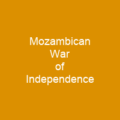What is Independence?
Independence, much like a bird breaking free from its cage, symbolizes the freedom to govern oneself without external interference. It’s not just a political state but a profound sense of self-determination that resonates deeply within every individual and community.
The Essence of Independence Day
Imagine celebrating your birthday, but instead of just another year older, you’re marking the day when you finally stepped out from under the shadow of colonial rule. That’s what independence day means for many nations. It’s a time to reflect on the journey and the sacrifices that led to this momentous occasion.
Independence vs. Revolution
Is independence always the result of revolution? Not necessarily. Sometimes, it can be as quiet and peaceful as a butterfly emerging from its cocoon. While revolutions often aim to redistribute power, they don’t always guarantee full sovereignty. The path to true independence is multifaceted, with various methods leading to this goal.
Causes for Independence
Why do people seek independence? Often, it’s because of a deep-seated feeling that the dominant power treats them unfairly or unjustly. It’s like being in a relationship where you feel unheard and undervalued; eventually, you might decide to break away and find your own path.
Autonomy vs. Protectorate
Autonomy is when a region gains independence but still has some form of oversight from an external authority. A protectorate, on the other hand, is like a child who’s allowed to make decisions within certain boundaries set by their parents. Both terms describe different levels of self-governance.
The Right to Independence
Is independence a universal right? Some argue that it applies only to territories that are unfree or colonies. This debate has been ongoing, with philosophers and activists advocating for the rights of all peoples to govern themselves without oppression.
A Historical Perspective on Declaring Independence
The history of declaring independence is marked by significant periods: from the 1770s-1830s, immediately after World War I, 1945-1979, and in the early 1990s. Each period brought its own unique challenges and triumphs, reflecting the changing dynamics of global politics.
Jeremy Bentham’s Work on Colonial Emancipation
Philosopher Jeremy Bentham was a strong advocate for colonial emancipation, arguing that all people have the right to self-determination. His work laid important groundwork in discussions about independence and human rights.

Conclusion
Independence is a journey, not just a destination. It’s about breaking free from chains and finding your own voice in the world. Whether through peaceful demonstrations or armed struggle, the path to independence is as varied as it is significant. As we celebrate these moments of freedom, let us remember that every step towards self-determination is a step towards true independence.
You want to know more about Independence?
This page is based on the article Independence published in Wikipedia (retrieved on March 11, 2025) and was automatically summarized using artificial intelligence.





